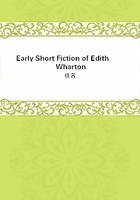
第9章
There she paused a moment, and assured herself that no one was following her; then she began to go down the stairs in the darkness. They were so steep and winding that she had to go very slowly, for fear of stumbling. Her one thought was to get the door unbolted, tell Lanrivain to make his escape, and hasten back to her room. She had tried the bolt earlier in the evening, and managed to put a little grease on it; but nevertheless, when she drew it, it gave a squeak . . . not loud, but it made her heart stop; and the next minute, overhead, she heard a noise. . .
"What noise?" the prosecution interposed.
"My husband's voice calling out my name and cursing me."
"What did you hear after that?"
"A terrible scream and a fall."
"Where was Herve de Lanrivain at this time?"
"He was standing outside in the court. I just made him out in the darkness. I told him for God's sake to go, and then I pushed the door shut."
"What did you do next?"
"I stood at the foot of the stairs and listened."
"What did you hear?"
"I heard dogs snarling and panting." (Visible discouragement of the bench, boredom of the public, and exasperation of the lawyer for the defense. Dogs again--! But the inquisitive Judge insisted.)
"What dogs?"
She bent her head and spoke so low that she had to be told to repeat her answer: "I don't know."
"How do you mean--you don't know?"
"I don't know what dogs. . ."
The Judge again intervened: "Try to tell us exactly what happened. How long did you remain at the foot of the stairs?"
"Only a few minutes."
"And what was going on meanwhile overhead?"
"The dogs kept on snarling and panting. Once or twice he cried out. I think he moaned once. Then he was quiet."
"Then what happened?"
"Then I heard a sound like the noise of a pack when the wolf is thrown to them--gulping and lapping."
(There was a groan of disgust and repulsion through the court, and another attempted intervention by the distracted lawyer. But the inquisitive Judge was still inquisitive.)
"And all the while you did not go up?"
"Yes--I went up then--to drive them off."
"The dogs?"
"Yes."
"Well--?"
"When I got there it was quite dark. I found my husband's flint and steel and struck a spark. I saw him lying there. He was dead."
"And the dogs?"
"The dogs were gone."
"Gone--where to?"
"I don't know. There was no way out--and there were no dogs at Kerfol."
She straightened herself to her full height, threw her arms above her head, and fell down on the stone floor with a long scream.
There was a moment of confusion in the court-room. Some one on the bench was heard to say: "This is clearly a case for the ecclesiastical authorities"--and the prisoner's lawyer doubtless jumped at the suggestion.
After this, the trial loses itself in a maze of cross-questioning and squabbling. Every witness who was called corroborated Anne de Cornault's statement that there were no dogs at Kerfol: had been none for several months. The master of the house had taken a dislike to dogs, there was no denying it. But, on the other hand, at the inquest, there had been long and bitter discussion as to the nature of the dead man's wounds. One of the surgeons called in had spoken of marks that looked like bites. The suggestion of witchcraft was revived, and the opposing lawyers hurled tomes of necromancy at each other.
At last Anne de Cornault was brought back into court--at the instance of the same Judge--and asked if she knew where the dogs she spoke of could have come from. On the body of her Redeemer she swore that she did not. Then the Judge put his final question: "If the dogs you think you heard had been known to you, do you think you would have recognized them by their barking?"
"Yes."
"Did you recognize them?"
"Yes."
"What dogs do you take them to have been?"
"My dead dogs," she said in a whisper. . . She was taken out of court, not to reappear there again. There was some kind of ecclesiastical investigation, and the end of the business was that the Judges disagreed with each other, and with the ecclesiastical committee, and that Anne de Cornault was finally handed over to the keeping of her husband's family, who shut her up in the keep of Kerfol, where she is said to have died many years later, a harmless madwoman.
So ends her story. As for that of Herve de Lanrivain, I had only to apply to his collateral descendant for its subsequent details.
The evidence against the young man being insufficient, and his family influence in the duchy considerable, he was set free, and left soon afterward for Paris. He was probably in no mood for a worldly life, and he appears to have come almost immediately under the influence of the famous M. Arnauld d'Andilly and the gentlemen of Port Royal. A year or two later he was received into their Order, and without achieving any particular distinction he followed its good and evil fortunes till his death some twenty years later. Lanrivain showed me a portrait of him by a pupil of Philippe de Champaigne: sad eyes, an impulsive mouth and a narrow brow. Poor Herve de Lanrivain: it was a grey ending. Yet as I looked at his stiff and sallow effigy, in the dark dress of the Jansenists, I almost found myself envying his fate. After all, in the course of his life two great things had happened to him: he had loved romantically, and he must have talked with Pascal. . .